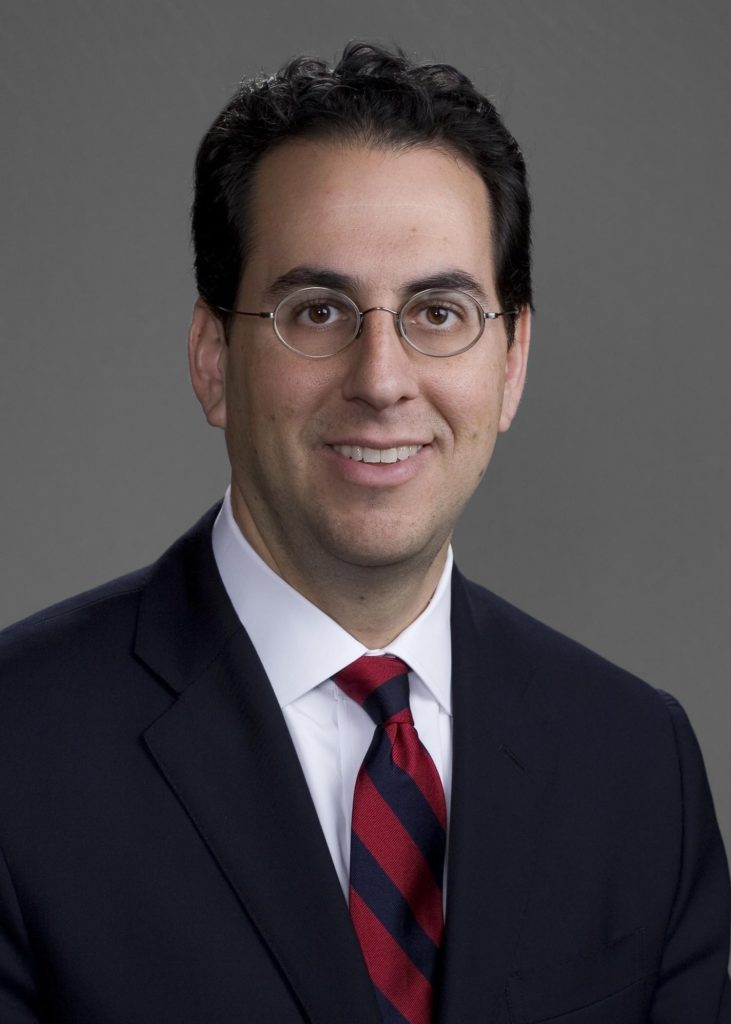Call him “Simplification Man.”
Ryan Maierson, a partner at Latham & Watkins in Houston, has worked on two midstream oil and gas deals in a 24-hour period that involve “simplification,” or restructuring the ownership of master limited partnerships by their parents to lower costs and create transparency for investors.
Yesterday Latham announced that Maierson led the team advising Canonsburg, Pa.-based Equitrans Midstream Corp. on a series of transactional moves valued at $10.45 billion, including the acquisition of its $4.3 billion (market cap) affiliate EQM Midstream Partners.

And today, the firm said Maierson counseled the conflicts committee of Houston-based Shell Midstream on its agreement with its general partner to eliminate incentive distribution rights, or IDRs, and general partner economic interests as well as buy assets from sponsor Royal Dutch Shell in a deal valued at $4 billion.
Latham – and Maierson in particular – has worked on a lot of simplification deals in the midstream space, including advising UGI on its $2.4 billion purchase of the stock it didn’t own of AmeriGas last year.
The assets Shell Midstream is acquiring include a 79% interest in Mattox Pipeline Co., which owns the 90-mile Mattox Pipeline that moves produced crude oil in the Gulf of Mexico; and logistics assets at the Shell Norco Manufacturing Complex, including crude, chemicals, intermediate and finished product pipelines, storage tanks, docks, truck and rail racks and supporting infrastructure.
As consideration for the assets and the elimination of the IDRs, Royal Dutch Shell will receive 160 million newly issued common units of Shell Midstream plus $1.2 billion of Series A perpetual convertible preferred units at $23.63 per unit.
On both deals, Maierson was assisted by lead associate Ryan Lynch. Others who worked on the Shell deal were associates Madeleine Neet, Blake Berkey and Adam Midkiff; Houston tax partners Tim Fenn and Jim Cole; Houston environmental partner Joel Mack; and Houston oil and gas partner Jonathan Castelan with associates Thomas Hillebrand and Rebecca Kendall.
Baker Botts partner Mollie Duckworth in Austin led the team counseling Royal Dutch Shell. She was assisted by partner Joshua Davidson, senior associate Sarah Dodson, associates Josh Gonzales and Lauren Richter and tax partners Michael Bresson and Robert Phillpott and senior associate Jared Meier.
Evercore provided financial advice to Shell’s conflicts committee and Barclays did so for Royal Dutch Shell. Evercore tapped Bracewell for legal advice, including partner Will Anderson and associates Benjamin J. Martin and Andrew W. Monk.
Kevin Nichols, CEO of Shell Midstream’s general partner Shell Midstream Partners GP, said in a press release that the transaction positions the partnership well for the future, simplifying its structure and lowering its cost of capital.
“Our diversified portfolio continues to deliver sustainable growth – and I’m pleased with the addition of the Mattox Pipeline and Norco logistics assets, which will enhance our strategic position both onshore and offshore,” he said.
Both deals continue a wave of MLP simplification transactions over the past several years that may be coming to an end soon.
Jefferies midstream analyst Christopher Sighinolfi said in a report in December that only Sunoco LP in his coverage area had an IDR structure (its parent is Energy Transfer). However, he thinks that mergers and acquisitions among midstream entities could follow the simplification trend.
“Simplified structures and improved governance may … encourage M&A as the scope of pro-forma deal uncertainty is narrower and reduced growth allows for a greater focus on commercial and operational efficiencies,” he wrote.
Sunoco CEO and president Joseph Kim said on a conference call with analysts last week that there weren’t any efforts being spent by either Sonoco or Energy Transfer on IDR elimination.
“I think what you got to keep in mind is, two years ago, when we completed the 7-Eleven transaction, we laid out a plan and a strategy to create value for all our shareholders and we’re delivering on that,” he said. “We feel very confident that we’re going to continue to execute on this plan and continue to deliver value for all our stakeholders.”
The newly issued Shell Midstream common units are expected to receive distributions beginning with those made for the second quarter. The parties anticipate that the current structure for the IDRs will remain in place for the distributions made for the first quarter.
The preferred units will pay a 4% annual coupon rate and are convertible, at the sponsor’s option, after about two years and then after around three years, in each case subject to certain conditions. Royal Dutch Shell agreed to waive $20 million of common unit distributions per quarter for four quarters beginning with the distribution made for the second quarter.
The parties expect to close the transaction in the second quarter if it clears regulators, including under the Hart-Scott-Rodino Antitrust Improvements Act. After that, Shell Midstream’s general partner will hold a non-economic general partnership interest and around 270 million common units, or about 69% of Shell Midstream’s outstanding common units.
